Romanov: The Tsar of the WJC
January 11, 2020
By Grant McCagg
The Montreal Canadiens will be missing the playoffs for the fourth time in the past five years. Normally this would trigger panic, indignation and outrage in Habs nation as it did two winters ago.
Alas; times have changed thanks to the kids. Yes…the kids are alright.
Suzuki, Kotkaniemi, Primeau, Poehling and Fleury have all shown promise on the big team this season. When you mix in the prospects on the way, fans are excited about the future for the first time since the Serge Savard era, when the club was teeming with promising young talent.
Thank goodness for the World Junior tournament.
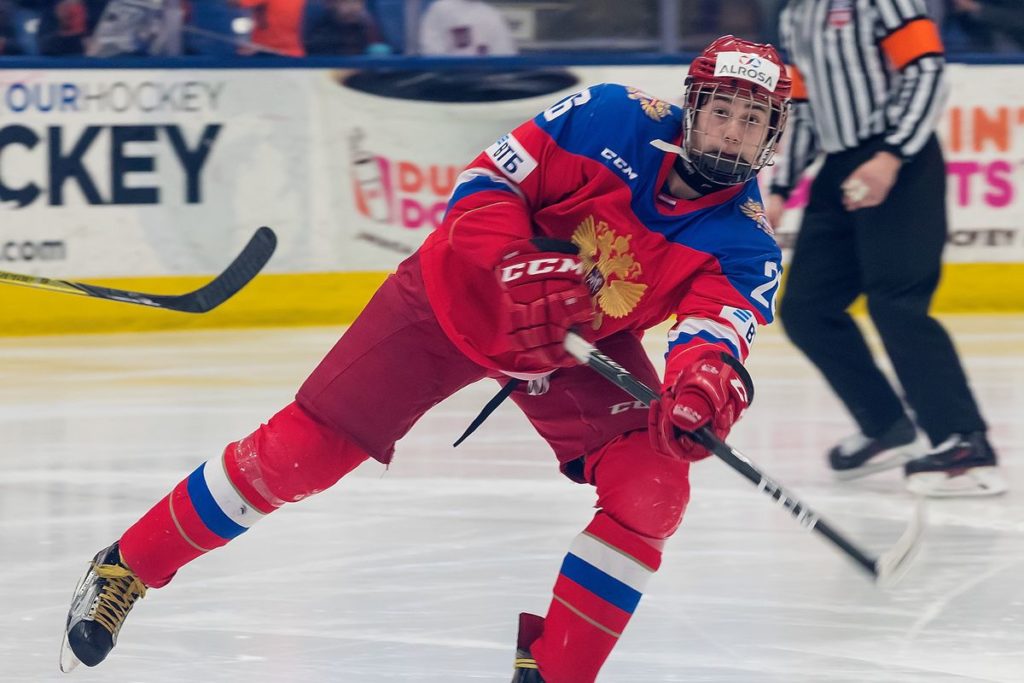
For the second-straight event, Canadiens prospect Alex Romanov impressed the hockey community with a standout performance on the Russian blueline. Thunderous hits, flawless defence, unparalled leadership/competitiveness and elite skating and puck-moving ability.
Three defencemen have made the WJC all-star team twice in the past three decades – Dion Phaneuf, Kenny Jonsson…and now Romanov.
One NHL scout texted me during the playoffs to gush about the play of Romanov. “I watched him a lot this week. He is looking like the most pro-ready defenceman here.”
Heady stuff considering that TSN couldn’t stop gushing about Rasmus Sandin, who led all blueliners in points at the WJC with ten, and was named the Top Defenceman by the directorate. TSN analyst Craig Button called Sandin the best defenceman at the tournament, and added that “it’s not even close.”
One NHL scout, when asked about Button’s comment, agreed that it was not close…. the tournament’s best defenceman was Romanov, and not Sandin.
“There’s no hockey man that was at the WJC that would ever trade Romanov for Sandin,” said the scout. “Button is pandering to the Toronto audience. Romanov could play in the NHL right now. Every hockey guy, including GMs, was talking about him.”
Several NHL scouts lauded Romanov when contacted by Recrutes during the WJC, and asked which defenceman had impressed them the most. Two were critical of Sandin’s play in the defensive zone.
“If Sandin is so good, why wasn’t he playing for the Leafs?” asked one veteran scout. “Sweden’s division was so weak..the other teams were like Junior B teams. It’s not all about points… Sandin can’t defend.”
The game-winning goal in overtime of Sweden’s semi-final game showed how far Sandin still has to come on the defensive side of the puck, being beat to the outside with a deke from Russian forward Ivan Morozov.
“You never saw Romanov beaten like that with a poor pivot,” added the scout. “Romanov is one of the best junior-aged defencemen I’ve ever seen. I’ve never seen a guy kill plays the way he does. And he’s fearless.”
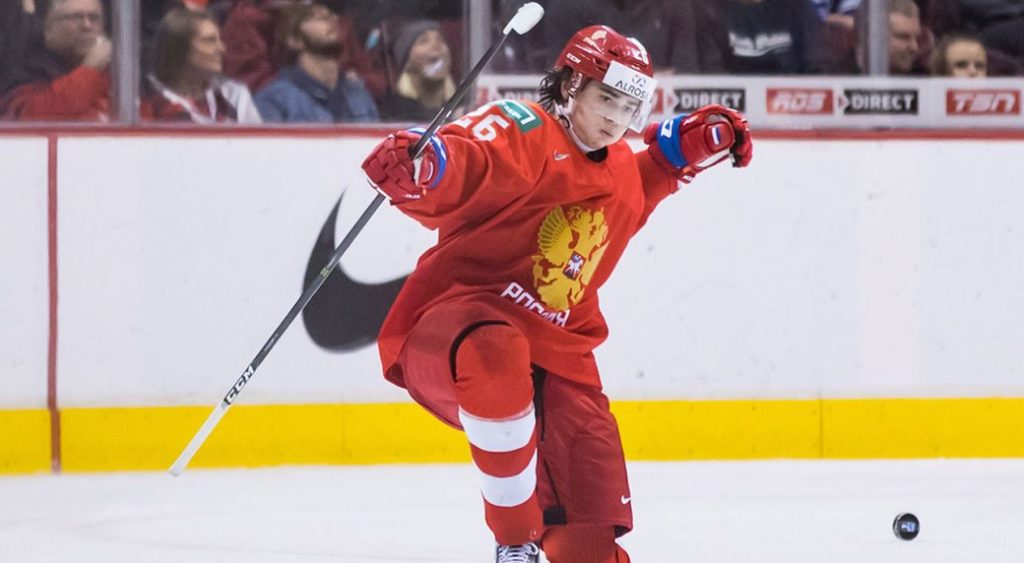
Romanov wore an ‘A’, but by tournament’s end it was pretty clear that he was Russia’s leader on the ice.
Urging teammates to keep on pressing after scoring a goal to cut into a deficit, coming up with a big hit to motivate his teammates, calming things down when that infamous Russian temper was rearing its head with teammates after adversity struck….Romanov was Russia’s de facto captain.
The reaction of the Russian players after a non-call on the puck over glass at the end of the gold-medal game versus Canada was the most telling example of Romanov’s leadership skills. The camera panned to Russian captain Grigori Denisenko and Romanov having a conversation.
Denisenko was visibly upset about the call and complaining to Romanov with a pained expression on his face. Romanov was already past it and focusing on what was important – trying to tie the game, as the Russians were still on a 6-on-4 and trailing by just a goal.
Romanov’s upbringing has undoubtedly helped shape his poise and leadership qualities. Romanov’s father played ten year’s in the top Soviet/Russian hockey leagues, and his grandfather on his mother’s side is Zinetula Bilyaletdinov, a former Soviet star defenceman who appeared in nine World championships and two Olympic games.
Bilyaletdinov went on to coach in both Russia and North America over a 30-year span that included two KHL championships and consecutive years as Russia’s head coach at the world championships, as well as four years as an assistant coach with the Winnipeg Jets/Phoenix Coyotes from 1993-97.
The man affectionately known throughout the hockey world as “Coach Bil” was the first Russian to ever coach in the NHL. He has undoubtedly passed on many nuggets of wisdom to grandson Alex on both playing defence, and life in the NHL and Canada, and, because of that, Romanov’s adaptation to playing in the NHL may not be as taxing as it is to most Russians who don’t play any junior hockey in North America.
Montreal’s other blue-chip prospect at the WJC did not fare nearly as well as Romanov. American super scorer Cole Caufield ended the even with a modest one goal and one assist.
The one thing you can’t control with a prospect is usage. In Caufield’s case, the decision to put him with checkers instead of a skilled playmaker like Trevor Zegras was a collosal error. It was even more inexplicable to leave him off of the first power-play unit.
Caufield scored four goals in his final U-20 exhibition game versus Germany, including a pair of power-play goals.
What does coach Scott Sandelin do to start the tournament? He puts him with Jack Drury and John Beecher. Both of those players are smart two-way guys at the junior level who will likely carve out NHL careers. What they will not likely be is top-six NHL forwards, because neither generates enough offence to assume such a role. Neither are what scouts would describe as skilled playmakers.
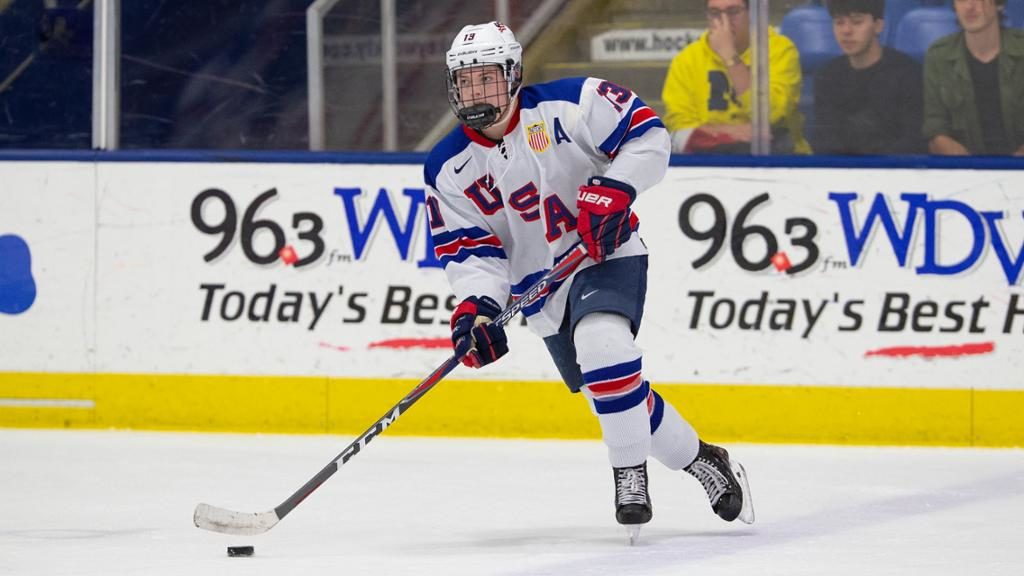
To make matters worse, the coaching staff also decided that 2019 second-round pick Bobby Brink was a better option on the first power-play unit. Never mind that at last year’s U-18s, Caufield scored 14 goals while Brink had four. Never mind that Caufield shattered USNTDP goal-scoring records.
Caufield sat second in NCAA goal scoring as a freshman when he left for the WJC, then he scored four goal in an exhibition game…and they put him on a checking line. The US got what they deserved…a loss in the quarter finals despite having the talent to win it all. Bobby Brink, in a top-six role and on the first PP, ended the tournament with one goal and one asist, the same as under-utilized Caufield.
One can only wonder what Caufield may have done playing on a line with Trevor Zegras and Alex Turcotte, two teammates from last year’s USNTDP team that he had great chemistry with last season. That familiarity with Turcotte has continued at Wisconsin, where they play together on the top line.
“He has outplayed Turcotte this year,” said one scout who was surprised by Caufield’s lack of icetime at the WJC. “He might be the better player. More NHL ready than Turcotte. Elite shot. Elite at creating his own shot. Will score in the NHL, especially on the first power play.”
Do not put too much stock in Caufield’s WJC performance, as he was not properly utilized. It remains a 19-year-old’s tournament in part because coaches by definition are conservative, and invariably give the most important roles to the most veteran players even if there are younger guys with more talent and potential. Oliver Wahlstrom was going to be their go-to winger despite his many flaws because he was the 19-year-old top 12 pick. It should have been Caufield.
The good news is that Montreal’s other US prospect at the tournament managed to raise his stock in the scouting community even if he was also misused. Left defence prospect Jordan Harris was asked to play on the right side on a shutdown pairing alongside the highly inconsistent Mattias Samuelsson.
Despite being the top-scoring NCAA defenceman among all of the blueliners on the US team, Harris was given no time on the power play, and no shifts with an offensive-minded defence partner. He was quite possibly the best puck mover on that blueline along wih York, and they were the least used defencemen. No surprise that the Americans were shut out in their quarter-final match.
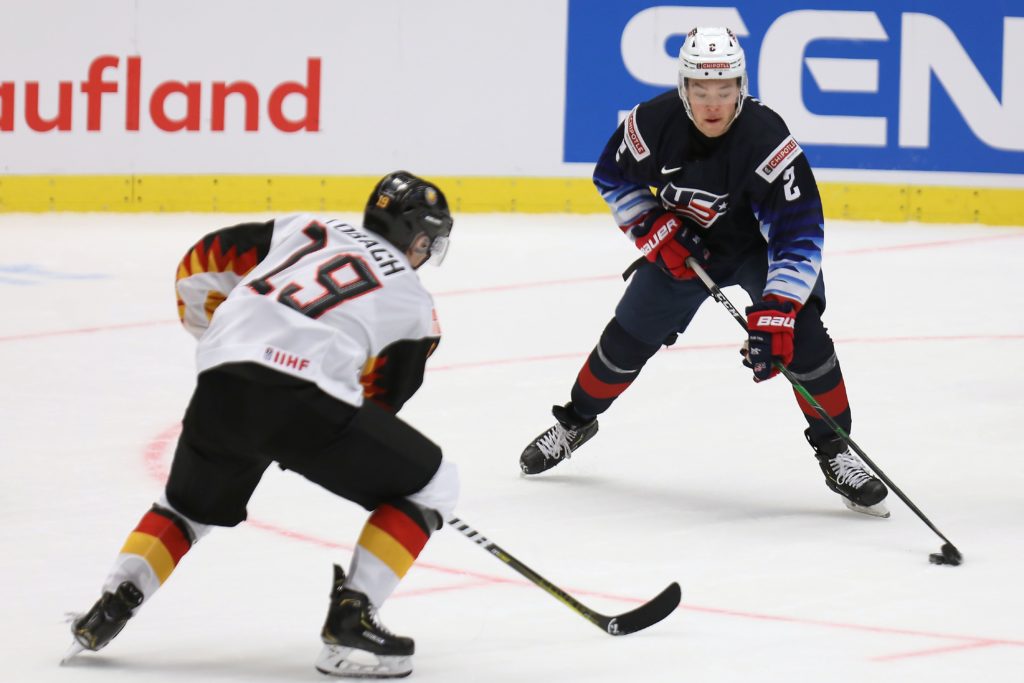
Harris finished tied for fourth overall among all defenceman in plus/minus at +4, and for the most part played mistake-free defence, just as he’s been doing at Northeastern this season as their go-to defenceman. While he lacks Romanov’s aggressiveness and elite gap control, Harris does have several similar traits in his game: size, poise, puck-moving skills and mobility.
“He plays an active but smart game..” said one scout. “Very good skating…he has NHL skating ability and uses it to get up in the rush and gap/angle his man defensively. He has made incredible progress the last two years. Our college guy has been blown away by him too. Very athletic and competitive.”
The Canadiens were slated to have two prospects playing for Sweden at the U-20’s as well until center Jacob Olofsson suffered an injury right before the event practising with his SHL team. Olofsson was just starting to break out offensively, and the Swedes were banking on him centering the top offensive line in his second WJC appearance.
Mattias Norlinder made Sweden’s defence despite never appearing internationally before this season, and missing the World Summer Showcase with a hand injury.
To no one’s surprise, considering that the other six defencemen had international experience and were all top-60 picks, Norlinder ended up being the seventh defenceman, playing less than ten minutes per game.
Much like Harris, he played well enough to get a bigger role, but Sweden wasn’t going to bench a top-ten pick like Philip Broberg, even though he struggled defensively.
When he was utilized, Norlinder demonstrated the skating skills that made him an attractive overage pick in the 2019 NHL draft.
“He is an outstanding skater in all four directions,” said one NHL scout that saw three of his games at the WJC. “He has excellent acceleration and speed. Smooth puck handler with one-on-one ability.”
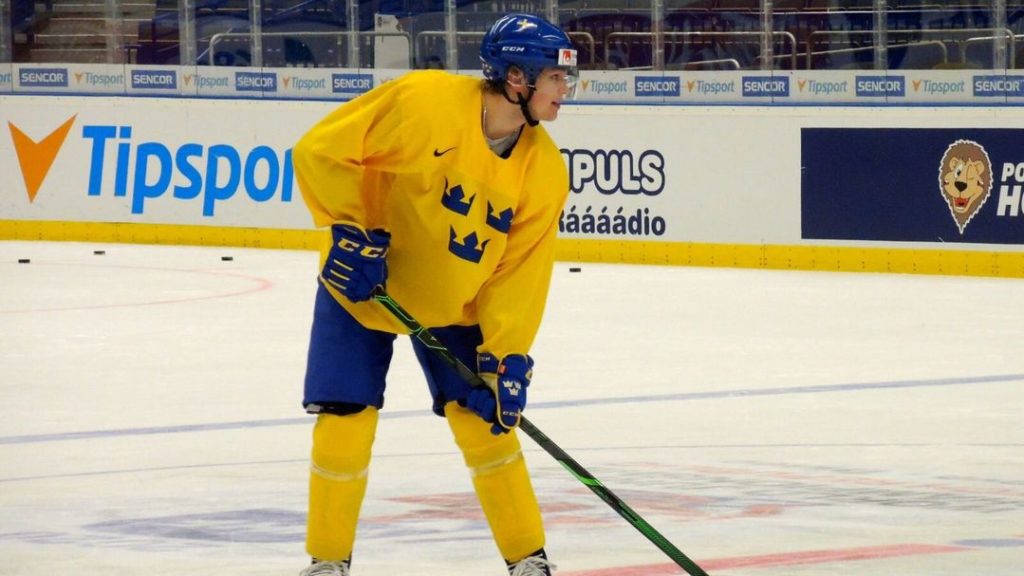
Norlinder failed to pick up a point in his 63 minutes of ice time playing a conservative role, but he did end the tournament with a +2 rating. By comparison, Broberg (picked eighth overall by Edmonton) was -3.
“He has a quick stick,” noted one scout. “He is able to utilize that abilty to strip pucks when he’s defending.”
Norlinder remains among the Allsvenskan league leaders in goals by a defenceman despite missing three weeks of the season.
“He has a quick release that can catch goalies by surprise,” said one scout who figures the 19-year-old could use another two seasons in Sweden. “He’s a late bloomer. He lacks strength, and needs time to mature. He is coming along nicely, a real student of the game that is very coachable.”
Four prospects…four discernibly different results. With prospects, however, and especially in a short tournament, it is less about results, and more about upside. All four showed, or reconfirmed, to the hockey world that they have legitmate NHL skills, and that is positive for Canadiens fans and the organization.